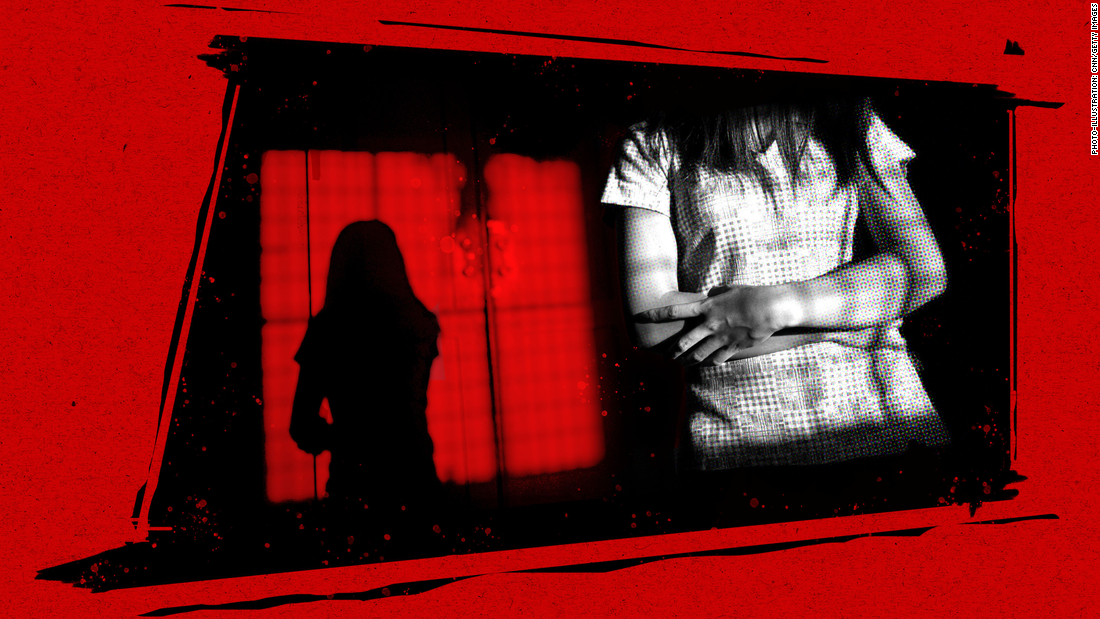
Antonette Acupinpin was 7 when the sexual abuse started.
She had already endured years of beating and physical violence from her mother and stepfather, she said — but then he took it a step further.
He would put a long knife near her face during the abuse, and threaten to kill her mother and brother if she reported him, she said. Terrified and ashamed, she didn’t tell anyone for a year and a half — until a school teacher saw her with a black eye and notified the police.
“I felt hopeless,” said Acupinpin, now 23. “It felt like I had nowhere to go because it’s my family who was hurting me. I didn’t know anyone who could really help me.”
She’s not alone. Child sexual abuse is rampant in the Philippines, which activists say is partly driven by the country’s law regarding the age at which girls can legally consent to sex.
At just 12 years old, it’s the youngest age of consent in Asia — and one of the youngest in the world. Opponents of the law say children that age are incapable of giving consent, and less likely to know how to call for help.
The law protects predators, critics say, because they can claim victims consented — and children as young as 12 can often be coerced or threatened into silence.
Victims’ advocates also argue the low age of consent contributes to what international rights organizations have described as high levels of sex trafficking and teenage pregnancy in the Philippines, compounded by gaps in the enforcement of existing laws.
“In the Philippines, we have about one woman or child raped every 53 minutes,” said Rep. Arlene Brosas of the Gabriela Women’s Party, citing 2016 data from non-profit organization Center for Women’s Resources. “We believe it is much worse — especially that child victims of sexual abuse are very prevalent.”
Brosas and a number of lawmakers are now fighting to raise the age of consent to 16, which is standard in many other countries, including the majority of the United States. The movement took a significant step forward last December when their proposed bill was overwhelmingly approved by the Philippines House of Representatives.
Raising the age is just one step — the bill includes a raft of other provisions to strengthen enforcement, improve the investigation and legal process, and provide more support and confidentiality for victims of sexual exploitation and abuse.
But the bill still has a long way to go before it becomes law, and time is running out. Elections are less than a year away — at which point lawmakers will have to start over from scratch. If it doesn’t pass before then, the bill’s supporters say millions of children will remain vulnerable to exploitation — and with reports of images depicting child sex abuse skyrocketing during the pandemic, the threat has never been more urgent.
A 90-year-old law
Activists in the Philippines have been pushing to change the law since the 1980s.
The age of consent is enshrined in the country’s Revised Penal Code, passed in 1930. Under the penal code, rape is defined as “having carnal knowledge of a woman” through the use of force, when the woman is unconscious, “deprived of reason” — or “when the woman is under 12 years of age.”
The age seems shockingly low by modern standards, but it reflects historical attitudes. In many places across Europe — including Spain, which ruled the Philippines as a colony for more than 300 years until 1898 — early laws placed the age of consent between 10 and 12 years old.
During the 19th century, some countries began raising it to between 13 and 16, according to Stephen Robertson, historian and professor at George Mason University. By the early 1900s, legislators in the US and Britain were pushing to raise the age to between 16 and 18, with other parts of the world following suit throughout the century.
But as other countries amended their laws to reflect their evolving understanding of sex and adulthood, the Philippines’ age of consent stayed the same.
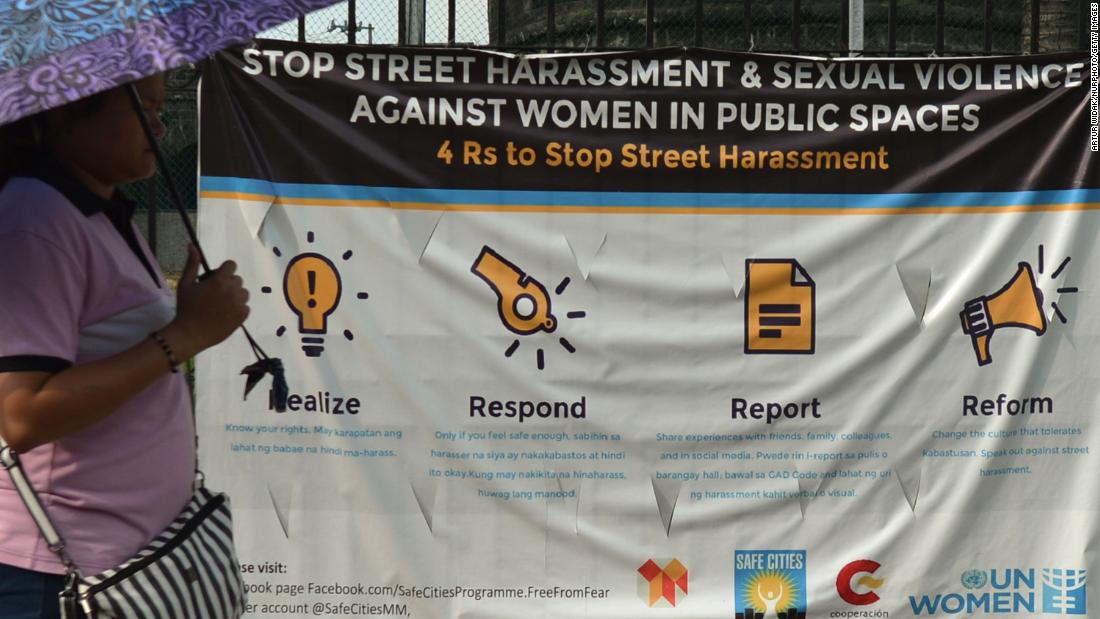
The penal code is “one of the oldest laws in the Philippines,” said Selena B. Fortich, Philippines country program manager for child protection at the NGO Plan International. “It has many archaic provisions — many do not apply and should not exist in contemporary society.”
Some clauses have been amended over the years, but not the age of consent — meaning there are now “inconsistent” legal ages, she added. “The minimum age for getting married is 18, to enter into contracts and to vote is also 18. Yet, the minimal age for sexual consent is 12.”
There are a few reasons the age of consent hasn’t changed in the past 91 years. A major one is the lack of education and understanding among lawmakers and the general public of concepts like children’s cognitive development and the ability to give informed consent, said Patrizia Benvenuti, child protection chief at UNICEF Philippines.
And though public awareness about the issue has expanded in recent years, the child rights sector is relatively new in the country and less established than other social movements, such as the campaign for women’s rights.
Why some lawmakers don’t want change
Some lawmakers argue there is no need to change the age of consent because the country already has laws against child abuse.
An anti-child abuse law passed in 1992 criminalized sex with children under 18 “for money, profit, or any other consideration or due to the coercion or influence of any adult, syndicate or group.” Another anti-trafficking law, enacted in 2003 and expanded in 2012, prohibited the sexual exploitation and prostitution of children, as well as the creation of images depicting child sexual abuse.
However, the existing laws require young, traumatized victims and their lawyers to prove they were coerced into sexual exploitation. It’s an easier task if a child is trafficked to multiple abusers — but much more difficult when a child is abused by just one person, which is typically the case with abusive family members, said Benvenuti from UNICEF.
An amended statutory rape law would automatically criminalize sex with children under 16.
“Why can’t we increase this age? The answer (from Congress) has always been, ‘Well, because we already have laws about this,'” said Bernadette J. Madrid, executive director of the Child Protection Network Foundation and head of the Child Protection Unit at the University of the Philippines Manila’s Philippine General Hospital.
All four advocates CNN interviewed agreed the failure to act suggests a lack of concern or urgency in Congress.
The age of consent “was never prioritized as much as other issues,” said Fortich, from Plan International. “That’s a big challenge in terms of enforcement of the law. There’s a gap in terms of implementation.”
Abused at home
The Philippines is the world’s largest source of livestreamed child sex abuse, according to UNICEF — but children are also being abused offline at home.
In a 2015 study involving 3,866 Filipino respondents aged 13 to 24, about 3.2% said they had been raped during childhood. And more than 17% of those aged 13 to 17 experienced sexual violence, which includes “unwanted touch” or having explicit photos or videos taken, said the study, conducted by UNICEF and the Philippine government’s Council for the Welfare of Children.
The study found the abuse often took place in the home, where perpetrators were frequently family members — making it harder to detect and for victims to pursue justice.
Acupinpin said she had been reluctant to come forward as a child because she feared people would blame her for the abuse. “I was scared that they might say, he’s my stepfather, I gave him my consent,” she said.
After Acupinpin’s teacher notified the police about her injuries, she was removed from her parents’ care and placed in a care center for abuse survivors — but she didn’t initially tell anyone about the sexual abuse.
“I kept it to myself because I was so scared, because his threats still lingered in my mind,” she said.
It was only after she spoke with other children at the orphanage who had also been abused, that she finally disclosed the full extent of her stepfather’s abuse to her social worker.
Activists and international human rights organizations say online abuse of children has proliferated during the coronavirus pandemic, which has caused people — perpetrators and consumers of explicit materials — to stay home and spend more time online.
Rampant sex industry
A higher age of consent enshrined in law could help young children better identify and report abuse — and curb the country’s flourishing sex trafficking industry, said Brosas, the lawmaker.
The country’s poorest children are particularly vulnerable to grooming and exploitation. There have been cases of children who are lured by traffickers’ promises to fund their education, or to provide food and shelter, she said.
Though poverty in the Philippines is a long-standing issue that its leaders have worked for years to combat, conditions have become even more desperate during the pandemic, with many families left unemployed and hungry.
“Sometimes because of impoverishment of our families, the parents themselves are the ones who are the perpetrators,” Brosas said. “As long as they are being sent money from people … they force their children into sexual abuse.”
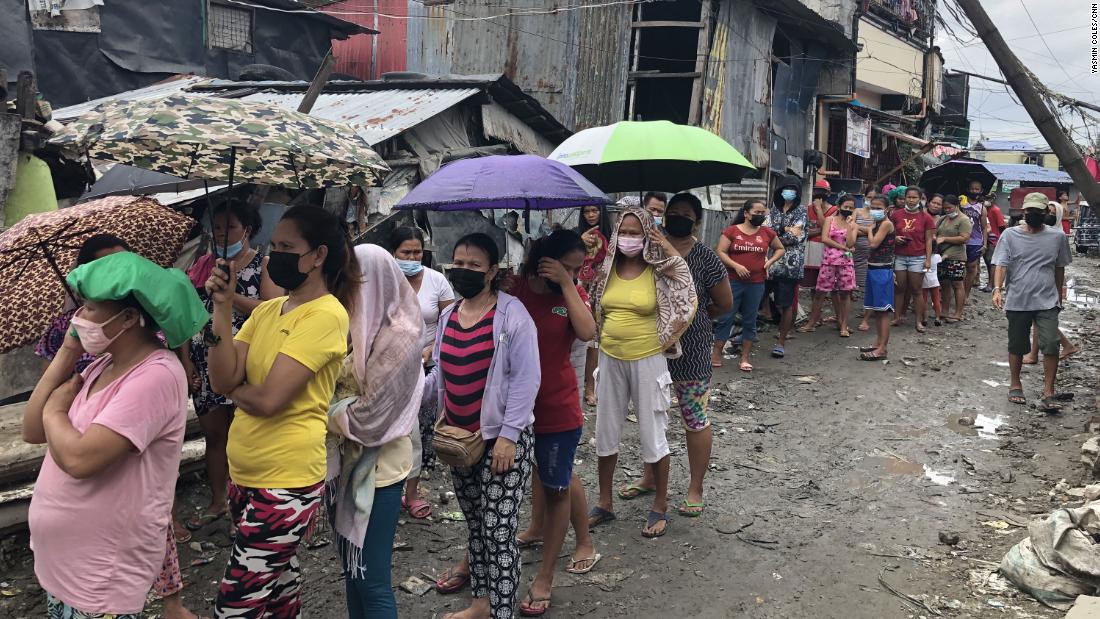
Before Covid-19, the Philippines was a popular destination for sex tourists, due to lax regulations and poor enforcement against sex trafficking or abuse.
“Pre-pandemic, there are tourists with very young people with them — 16, 15 (years old), in hotels,” Brosas said.
The Philippines is ranked Tier 1 by the US State Department’s anti-trafficking agency, which means it “meets the minimum standards for the elimination of trafficking.”
However, on the ground, there are often gaps in enforcement. The Philippine government “did not vigorously investigate and prosecute officials allegedly involved in trafficking crimes,” consistently prosecute trafficking recruiters, or increase support for child victims of sexual exploitation, said the US agency.
CNN has reached out to the Philippine Department of Justice and the Philippine Commission on Women, a government agency, for comment.
Lack of legal action
Even though reports of online child sexual abuse have surged, only a small proportion of cases make it to court, and even fewer reach a conviction.
From March to late May alone last year, as the country entered a strict coronavirus lockdown, the government’s cybercrime unit received 280,000 reports of online child sexual exploitation located in the country from a US nonprofit that receives referrals from major internet companies. That’s more than three times the number of reports received during the same period the year before.
Some of those reports were about the same piece of content, or were “inaccurate reporting,” said the government’s official news agency. The reports from that period led to seven arrests, and the rescue of 34 children.
But although the government’s anti-trafficking agency received 1.2 million reports of alleged online child sexual exploitation in 2020, only nine cases were opened for investigation, according to CNN affiliate CNN Philippines. It’s not clear why so few were taken up by investigators.
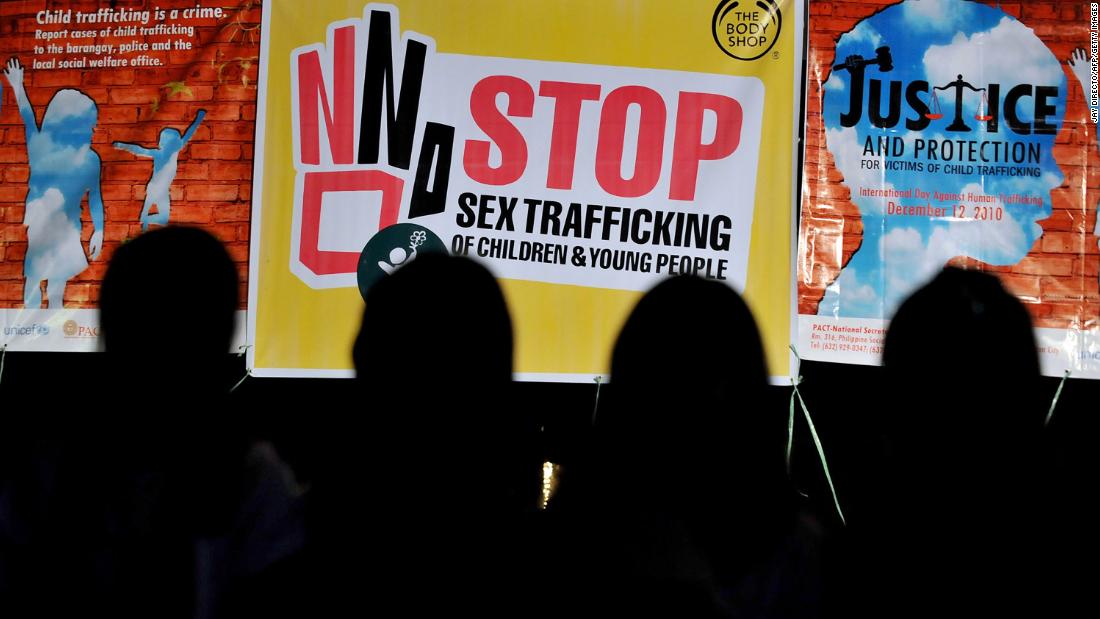
All these factors — combined with the fact most minors under 18 can’t access birth control without parental consent — help explain why the Philippines, a predominantly Catholic country, has one of the highest rates of teenage pregnancy in Southeast Asia.
As of 2019, the Philippines recorded 55 births annually per 1,000 women aged 15 to 19, according to the World Bank. To put that in perspective, the global average for that age group is 41.6 births per 1,000 women, according to the World Bank; in the US, that figure is 16.7.
“We have so many 15-year-olds who give birth in our wards, and their partners are 30, even 40 years old,” said Madrid. “When we look at our statistics in our women and children’s protection units (in hospitals) … we find that the age where we have the highest incidence of sexual abuse is 13 to 15. It’s a mountain peak — just so high compared to the rest of the age groups.”
‘This is our best shot’
After decades of lobbying to change the age of consent, it has never felt more possible or more needed than now, said Brosas.
The bill that passed the House in December — HB 7836 — combined several disparate bills, including one by Brosas, into a single unified proposal.
It lays out a sweeping list of amendments to the existing penal code and the anti-child abuse law; apart from raising the age of consent to 16, it would also expand the definition of rape, add a new clause for grooming, and raise the punishment for rape to up to 40 years’ imprisonment.
The bill does allow legal consent for younger teens under 16 as long as their partners are also close in age; for instance, a 13-year-old can consent to sex if the age difference with their partner does not exceed two years.
Its supporters hope the bill has a better shot of being passed due to growing public awareness of the issue and a newly sympathetic Congress.
“Previous to (the current legislature), there was really an active opposition in Congress,” said Madrid, the child protection director. Some opponents said legal change was unnecessary, given the existing laws. Newer members of congress weren’t aware of the issue, she said.
“Some of the new congressmen were amazed — they didn’t know that the age of statutory rape was below 12,” she said. “So they asked me the same question: Why? I said, you tell me!”
The new Congress was much more receptive, she added, as evidenced by the near-unanimous approval of the bill in the House. “This is our best shot for — forever,” she said.
But she and other advocates are nervous. For the bill to become law, first the Senate has to draft and pass a counterpart bill; then, the House and Senate must meet to negotiate any points of disagreement; once they’ve reached a bicameral agreement, the bill must then be signed by President Rodrigo Duterte.
Duterte promised in 2016 to investigate the rise of child and sexual abuse, and in February this year approved new measures to combat online child sexual exploitation — but he has also received harsh criticism from activists for sexist or offensive comments, including his claim in 2018 that he molested a maid while in high school, which his office later walked back.
‘We have no more time’
It’s been more than six months after the House bill passed, and the Senate still hasn’t produced a draft counterpart bill.
Next May, the current congressional session will end and seats will be up for election. If the bill hasn’t passed by then, it will be shelved and lawmakers will have to start over again. “We have no more time,” Brosas said.
And next year, they may find fewer allies in the House if former opponents return. “We don’t know who will be in the next Congress,” said Madrid. “We may be dealing with the same people, or not — we don’t know who will get elected. Maybe the people who were opposing (the bill) before will win again.”
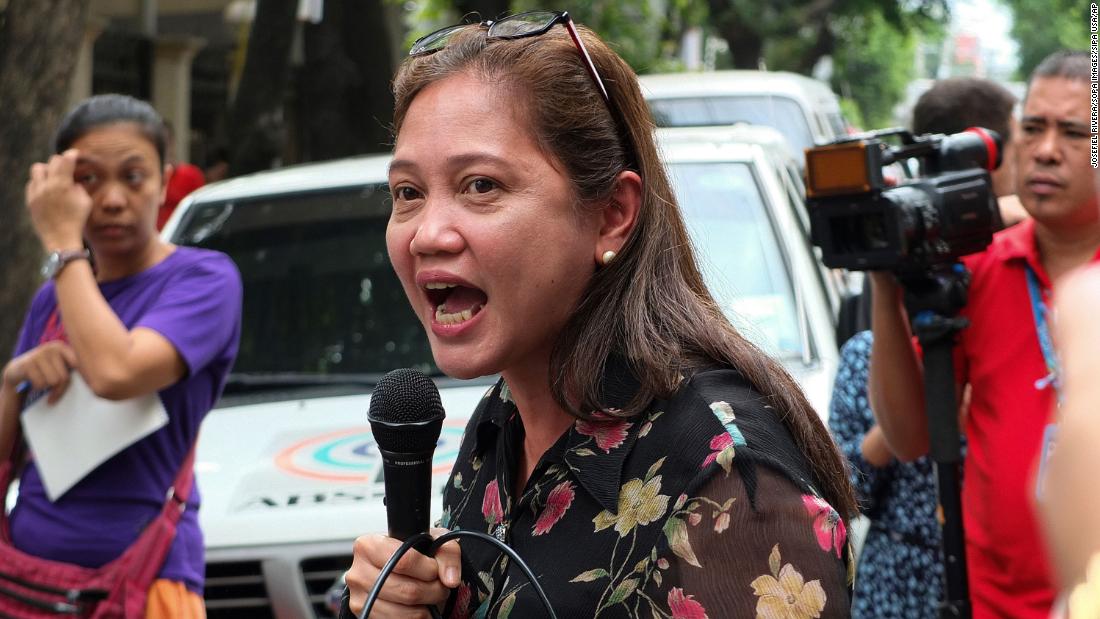
Acupinpin was eventually moved from the orphanage to a rehabilitation center by Cameleon, a non-profit organization that supports victims of sexual abuse, where she now works as a member of their advocacy staff. She, too, is anxiously watching the bill’s progress, hoping it can help protect children from the abuse she endured.
After police intervened, her stepfather was arrested and charged with violating the anti-child abuse law, but the case dragged on for years and was ultimately never adjudicated. The legal process — countless invasive interviews, testimonies, hearings and disrupted daily life — was like continually reopening a wound, Acupinpin said.
“Until now, I still have nightmares,” she said. “I had to balance my psychological well-being, my mental battles, by talking to psychologists.
At some points, it still comes back to me.”
If the bill, which includes clauses to make the process less traumatic for victims and provides a harsher penalty for those found guilty, had been law during her childhood, she said she would have pursued the case to the end.
“I felt like the justice system failed me at some point,” she said. “Even though I wanted to fight for justice, I felt like I had to sacrifice something — the trauma that I have to experience over and over again.”
“Many victims weren’t able to get the justice that they wanted because they were 14 or 15 at the time,” Acupinpin added. “We are defending children who cannot give consent … There’s a lot of victims suffering in silence.”
As reported by CNN
